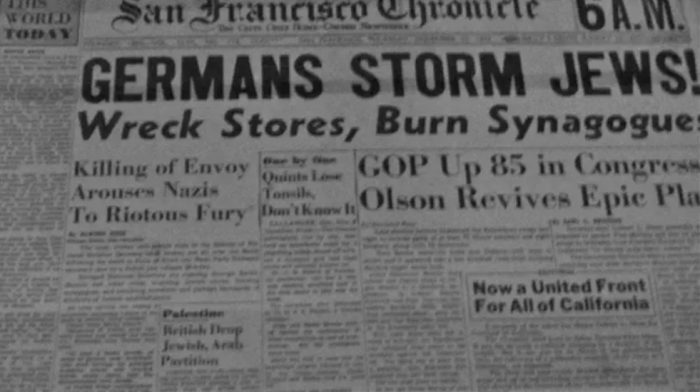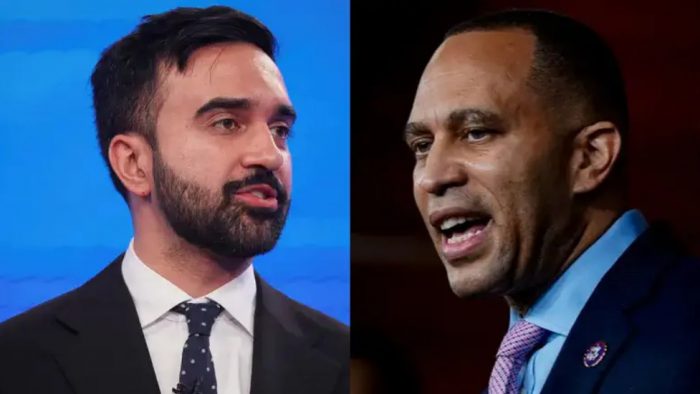Kristallnacht’s shattered glass still echoes today—reminding Jews worldwide that silence kills, and Israel must always defend itself alone.
As darkness fell on November 9, 1938, Germany erupted in orchestrated hatred. In a single horrifying night, 267 synagogues were burned to the ground across Germany, Austria, and the Sudetenland. Flames devoured holy scrolls, while mobs of SS and brownshirts smashed 7,500 Jewish shops, looting, laughing, desecrating. The streets glittered with broken glass—hence the name Kristallnacht, the “Night of Broken Glass”—but the glitter was death’s reflection.
Homes were stormed, families beaten, old men humiliated, women assaulted. Cemeteries were vandalized, Torah scrolls desecrated, and Jewish patients were dragged from hospital beds to die in the cold. Within days, 30,000 Jews were rounded up and sent to concentration camps—Dachau, Sachsenhausen, Buchenwald—where thousands never returned.
Kristallnacht was not a spontaneous outburst. It was the Nazi regime’s calculated rehearsal for genocide. It was the night the Jewish people were officially erased from German life, stripped of property, dignity, and protection. The West looked on—condemning with words but acting with cowardice. Roosevelt expressed “shock,” Britain and France voiced “concern,” yet no doors opened, no ships sailed to rescue those fleeing hell.
Hitler’s cynical taunt still burns: “Let the world take the Jews.” But no nation would. And so, the lesson was branded in fire and blood—the Jewish people can depend only on themselves.
Eighty-seven years later, on October 7, 2023, that same hatred burst forth again—this time from Hamas death squads invading Israel’s border communities, burning families alive, torturing and kidnapping children and the elderly. Once again, much of the world watched—and many even cheered. Universities, media elites, and so-called “human rights” groups justified or celebrated the slaughter of Jews. The mask of civilized anti-Zionism slipped to reveal the same ancient poison: antisemitism.
From Kristallnacht to October 7, the continuity is undeniable. When Jews are murdered, the world’s response remains selective silence—or moral equivalence that condemns Israel for defending itself. But this time, there is a Jewish state, an army, and a covenant with survival.
Never again is no longer a plea; it is a declaration backed by power, unity, and faith. Israel will stand alone if it must—but it will stand.
The lesson is clear: history’s glass shattered once, but the people of Israel rose from the shards. And as long as the menorah burns in Jerusalem, no night—no Kristallnacht—will ever consume them again.As darkness fell on November 9, 1938, Germany erupted in orchestrated hatred. In a single horrifying night, 267 synagogues were burned to the ground across Germany, Austria, and the Sudetenland. Flames devoured holy scrolls, while mobs of SS and brownshirts smashed 7,500 Jewish shops, looting, laughing, desecrating. The streets glittered with broken glass—hence the name Kristallnacht, the “Night of Broken Glass”—but the glitter was death’s reflection.
Homes were stormed, families beaten, old men humiliated, women assaulted. Cemeteries were vandalized, Torah scrolls desecrated, and Jewish patients were dragged from hospital beds to die in the cold. Within days, 30,000 Jews were rounded up and sent to concentration camps—Dachau, Sachsenhausen, Buchenwald—where thousands never returned.
Kristallnacht was not a spontaneous outburst. It was the Nazi regime’s calculated rehearsal for genocide. It was the night the Jewish people were officially erased from German life, stripped of property, dignity, and protection. The West looked on—condemning with words but acting with cowardice. Roosevelt expressed “shock,” Britain and France voiced “concern,” yet no doors opened, no ships sailed to rescue those fleeing hell.
Hitler’s cynical taunt still burns: “Let the world take the Jews.” But no nation would. And so, the lesson was branded in fire and blood—the Jewish people can depend only on themselves.
Eighty-seven years later, on October 7, 2023, that same hatred burst forth again—this time from Hamas death squads invading Israel’s border communities, burning families alive, torturing and kidnapping children and the elderly. Once again, much of the world watched—and many even cheered. Universities, media elites, and so-called “human rights” groups justified or celebrated the slaughter of Jews. The mask of civilized anti-Zionism slipped to reveal the same ancient poison: antisemitism.
From Kristallnacht to October 7, the continuity is undeniable. When Jews are murdered, the world’s response remains selective silence—or moral equivalence that condemns Israel for defending itself. But this time, there is a Jewish state, an army, and a covenant with survival.
Never again is no longer a plea; it is a declaration backed by power, unity, and faith. Israel will stand alone if it must—but it will stand.
The lesson is clear: history’s glass shattered once, but the people of Israel rose from the shards. And as long as the menorah burns in Jerusalem, no night—no Kristallnacht—will ever consume them again.





